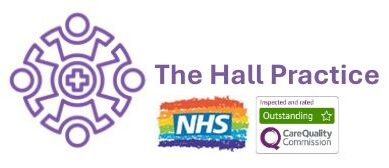Non-urgent advice: Supporting men to live longer, healthier lives
Men in England face significant health challenges, with a life expectancy nearly four years shorter than women’s on average. The government is developing its first-ever Men’s Health Strategy to tackle preventable causes of illness and death, reduce health inequalities, and improve men’s access to healthcare. This strategy focuses on promoting healthier behaviours, addressing mental health and suicide prevention, and ensuring men receive the support they need to live longer, healthier lives. We encourage all men and their families to learn more, engage with available services, and contribute their views to help shape better health outcomes for men.
Non-urgent advice: Mental Health and Suicide Prevention
Men’s mental health remains a critical but often overlooked aspect of overall wellbeing. Around half of men in the UK have experienced poor mental health at some point, yet stigma, societal expectations, and limited awareness continue to create barriers to seeking help.
Addressing men’s mental health requires normalising conversations, improving access to support services, and challenging stigma so that seeking help is seen as a sign of strength. Below are useful links to organisations and resources offering support and information for men’s mental health.
StrongMen Charity
Shout
Mental health helplines – Mind
Mental Health UK
Andy’s Man Club
Support Line
Movember
NHS UK
Addressing men’s mental health requires normalising conversations, improving access to support services, and challenging stigma so that seeking help is seen as a sign of strength. Below are useful links to organisations and resources offering support and information for men’s mental health.
StrongMen Charity
Shout
Mental health helplines – Mind
Mental Health UK
Andy’s Man Club
Support Line
Movember
NHS UK
Non-urgent advice: Prevention Matters
Prevention Matters supports people over 18 to maintain their independence and confidence. Our Team can support you in regaining your confidence, independence, and getting out and about if, for any of the following reasons, you are:
– Struggling to remain independent in your own house.
– Having difficulty getting out and about.
– Feeling lonely and isolated.
– Feeling anxious or lacking confidence.
– Recovering from an illness.
– Struggling to remain independent in your own house.
– Having difficulty getting out and about.
– Feeling lonely and isolated.
– Feeling anxious or lacking confidence.
– Recovering from an illness.
Non-urgent advice: Men’s Health Forum
Take notice of what’s going on in your body and mind.
Do the Forum’s quick and easy DIY Man MOT
Do the CAN DO challenge
Dig a bit deeper with their existing Man MOT manuals: Man MOT and Man MOT for the Mind.
Get an NHS health check (contact us at The Hall Practice to book)
Go and see your GP or use NHS 111 if you’re concerned about any symptoms
Do the Forum’s quick and easy DIY Man MOT
Do the CAN DO challenge
Dig a bit deeper with their existing Man MOT manuals: Man MOT and Man MOT for the Mind.
Get an NHS health check (contact us at The Hall Practice to book)
Go and see your GP or use NHS 111 if you’re concerned about any symptoms
Non-urgent advice: Domestic Abuse Affects Men Too
Talk it over!
Call the Men’s Advice Line for help and support 0808 8010327 or visit their website:
Domestic Abuse Helpline for Men | Men’s Advice Line UK
For local and national support services visit:
www.buckinghamshire.gov.uk/campaign/domestic-abuse-red-flags/
Call the Men’s Advice Line for help and support 0808 8010327 or visit their website:
Domestic Abuse Helpline for Men | Men’s Advice Line UK
For local and national support services visit:
www.buckinghamshire.gov.uk/campaign/domestic-abuse-red-flags/
Non-urgent advice: Support for new dads
Non-urgent advice: Prostate and Testicular Cancer
Prostate cancer is the most common cancer among men in England, primarily affecting men over 50. Early detection is crucial as symptoms may not appear in the initial stages, and timely treatment significantly improves outcomes.
Alongside prostate cancer, testicular cancer—though less common—is the most frequent cancer in younger men aged 30 to 34.
Both cancers highlight the importance of awareness, regular self-examination, and prompt medical consultation if symptoms arise. For more detailed information and support, please visit organisations such as Prostate Cancer UK and Cancer Research UK.
Below are useful links to organisations and resources offering support and information:
Prostate Cancer UK
Cancer Research UK
Prostate cancer – NHS
Testicular Cancer UK
McMillan Cancer Support
Testicular Cancer – NHS
Alongside prostate cancer, testicular cancer—though less common—is the most frequent cancer in younger men aged 30 to 34.
Both cancers highlight the importance of awareness, regular self-examination, and prompt medical consultation if symptoms arise. For more detailed information and support, please visit organisations such as Prostate Cancer UK and Cancer Research UK.
Below are useful links to organisations and resources offering support and information:
Prostate Cancer UK
Cancer Research UK
Prostate cancer – NHS
Testicular Cancer UK
McMillan Cancer Support
Testicular Cancer – NHS
